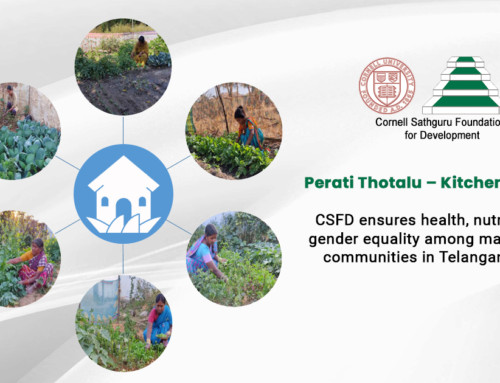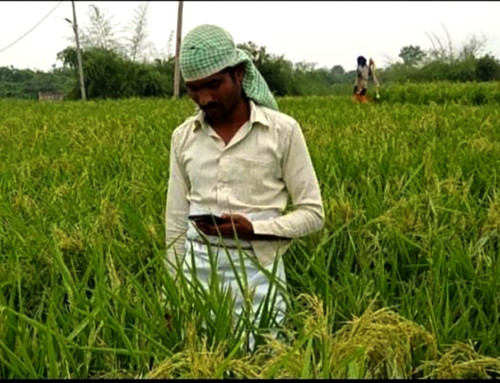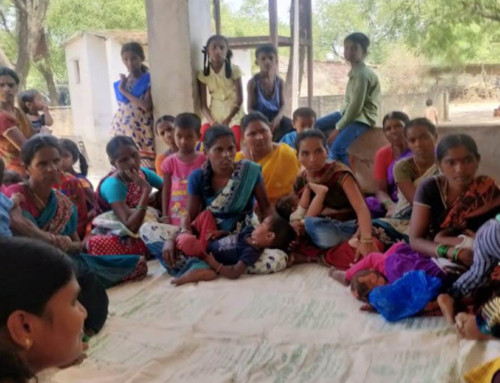A sustainable solution to achieve yearlong yield - A pilot project
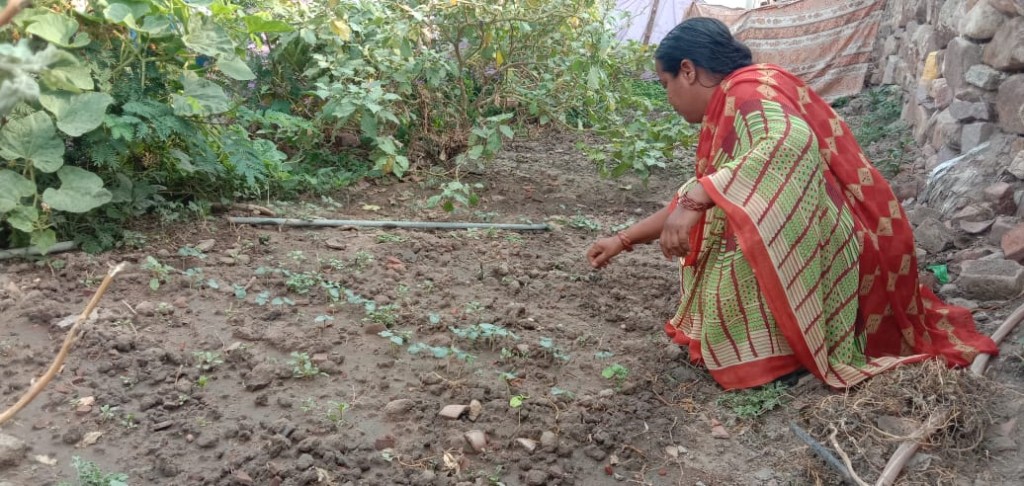
Cornell Sathguru Foundation for Development (CSFD), has piloted summer kitchen gardens in two villages in Sangareddy. The project concept is to ensure the availability of fresh vegetables by nurturing summer gardens by recycling the wastewater generated through kitchen sinks. Normally, the water from the kitchen sink is not contaminated and is perfect for use in kitchen gardens. CSFD has piloted summer gardens roping in 10 households and is eager to learn its effectiveness in nurturing gardens with wastewater and in sustainably achieving yearlong yield.
A consensus was drawn from the participants on the choices of vegetables that are most needed and suited for the summer season. Further, CSFD has provided participants with seven types of vegetables and four leafy greens. Households with past experience of laying gardens have quickly prepared the land and have sowed the seeds. Households were sensitized to the collection and usage of kitchen water to irrigate the gardens. Especially encouraged to collect the water amassed by washing and boiling rice, pulses, vegetables, eggs, meats, washing hands after meal, etc for irrigation purpose. Thereby rich nutrient water can flow into the gardens and nourish plants.
Some reflections of participants during the focussed group discussion.
Ms. Anjamma opined that “it should be possible to grow kitchen garden with the wastewater as this is an age-old practice. Thanks to CSFD for reintroducing this traditional practice in our villages”
Ms. Suvarna says that “the seeds provided by CSFD was perfect as in summer we can only grow few vegetables and leafy greens, but not all”
Ms. Sarvar Jahan mentioned that “I am glad that despite peak summer and limited water availability, we could still grow vegetables for our families and save some money as well”
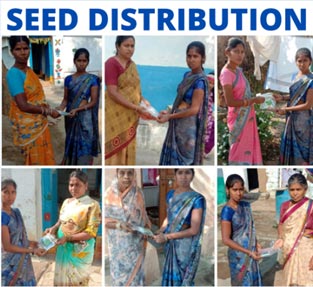
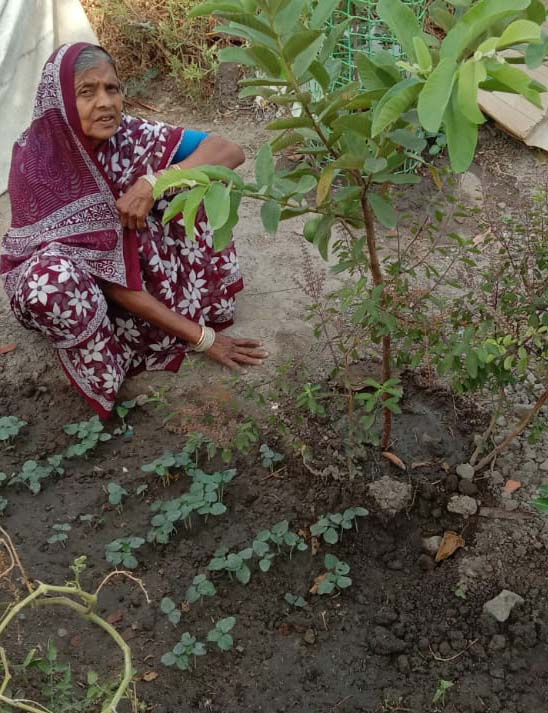 On continuous monitoring and evaluation of two cycles of kitchen gardens nurtured by CSFD among 500 households in two villages in Sangareddy in 2019 and 2020, proved that it a viable solution and has huge potential. The intervention has proved that it can reap a significant impact on improving food and nutrition security, help in minimizing the inequalities in accessing food, achieving gender equality and enabling women social and economic empowerment.
On continuous monitoring and evaluation of two cycles of kitchen gardens nurtured by CSFD among 500 households in two villages in Sangareddy in 2019 and 2020, proved that it a viable solution and has huge potential. The intervention has proved that it can reap a significant impact on improving food and nutrition security, help in minimizing the inequalities in accessing food, achieving gender equality and enabling women social and economic empowerment.
Besides the promising impact, the kitchen gardens project gave a great learning opportunity for CSFD to identify and address the challenges. While food taboos, non-availability of backyard space, lack of business approach, food processing opportunities remain, non-availability of water posed a major challenge.
Telangana as the state falls under a semi-arid zone with has a predominantly hot and dry climate and with alarming levels of groundwater depletion[1]. Kharif crops and home gardens thrive during the monsoon season. The summer seasons are hot with temperatures reaching up to 470C in May during which time people face severe water shortage and irrigation challenges. During the summer season, the agricultural activities slow down, and households give up home gardens completely, once again people depend on local vegetable markets investing time, energy and money for purchases. Unfortunately due to slowdown, people tend to lose interest in the kitchen gardening activity.
Given the concerns, a need for exploring simple water conservation models and sustaining kitchen garden activity was felt important. Hence piloted summer kitchen gardens in 10 households to check the effectiveness of irrigating gardens through wastewater generated from kitchen sinks.
Further to the ripple effects on health and nutrition, achieving gender equality and improving decision-making power among women to invest savings in education and social needs of their families, this intervention will facilitate effective wastewater management, conservation of natural resources and reducing carbon footprint by reducing frequent visits to vegetable markets. And overall will set as a model for inspiring and scaling kitchen gardens by other villages.
[1] Ground Water Brochure. Central Ground Water Board, Ministry of Water Resources Government of India. http://cgwb.gov.in/District_Profile/Telangana/Hyderabad.pdf
Author:

Raja Rajeswari
Associate Vice President – Development

